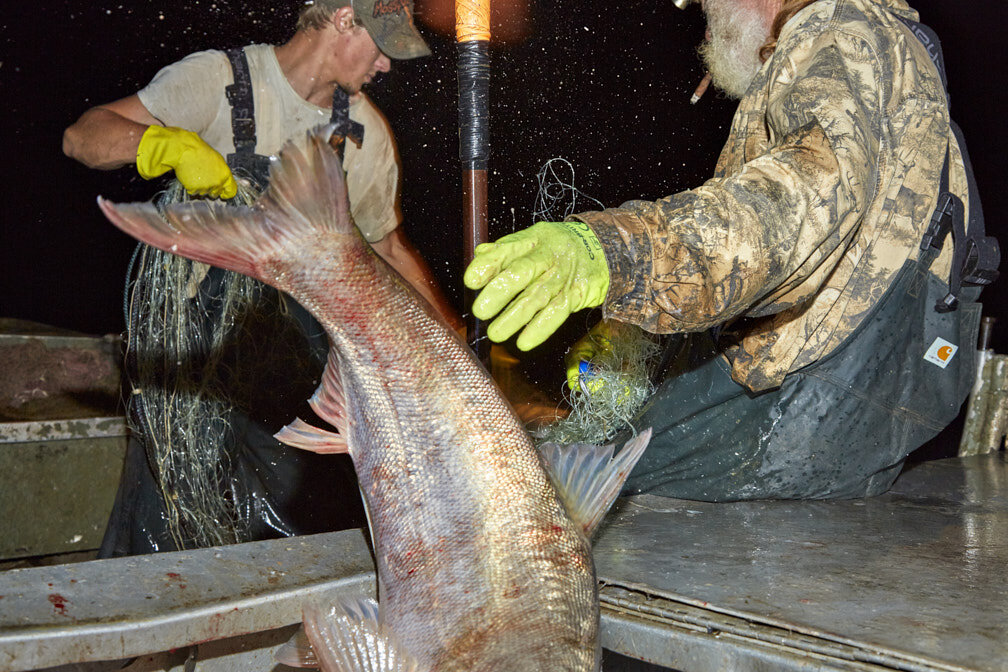Mountain Landscape. Breathitt County Kentucky, 2015. Bob Hower
Kentucky is not just one thing, and this project shows how much lies behind the curtain of cliché and stereotype.
The Kentucky Documentary Photographic Project (KDPP) is an ongoing visual history of Kentucky. The project investigates the whole state over a period of 120 years and captures the changes in: How we looked - What we wore - How we worked - What we made - How we used the Land - What we did for fun - How we worshipped - How we lived.
Taking inspiration from the work of the Farm Security Administration (1935–1943), this is the third time in an eighty-year period that photographers have roamed the state recording the landscape and how Kentuckians live, work, and play. - from the KDPP website.
It is frequently said that the strength and value of good photography is that it reveals something about the world around us that we might not otherwise comprehend. It most often exposes and only rarely covers up the truth. The work of the Kentucky Documentary Photographic Project provides ample evidence of such exposure.
Brandon and Jammie (before Brandon went to Jail). Whitley City, McCreary County Kentucky 2019. Rachel Boillot
The project is ambitious. As Bill Burke, Bob Hower and Ted Wathen did during 1975-77, it seeks to send photographers into every one of Kentucky’s 120 counties. In the current exhibit Looking At Kentucky Anew…The Kentucky Documentary Photographic Project: A Louisville Photo Biennial Exhibit at Metro Hall, we see mostly images that take us away from the cities like Louisville and Lexington that are photographed almost too much. Louisville, in particular, with the Kentucky Derby, hosts thousands of camera lenses each year. Whatever the reason, that search into so many rural areas discovers people who seem less guarded and more honest in how they accept having their picture being taken. Or perhaps it is the lack of big-city rhythms in which the common humanity gets lost that allows a young couple such as Brandon and Jamie to permit the camera into so intimate and relaxed a moment. The young man surrenders himself entirely to the young woman; both look directly into the camera but it is the easily commanding gaze of the woman that is so arresting. It forces the viewer to take the two on their own terms.
However, in another instance, the scrutiny of the camera lens is less welcome. Photographer Bob Hower describes one late night encounter:
Public Disturbance at a Motel 6. Paducah, McCracken County Kentucky, 2015. Bob Hower
“In the summer of 2015 I spent an afternoon and evening riding with the City of Paducah Police Department. Late in the shift, we were called to a Motel 6 to check on a public disturbance. During the time I spent with him Kelly Drew, the officer I was riding with, talked about how important it was to diffuse and calm tense situations. The man you see seated here was being very loud – he was intoxicated, yelling, and angry. With my back to the scene, I put the camera around my neck, set the proper exposure and angle of view, and then approached. Letting the camera hang on my chest with my hand on the shutter. I was hoping to photograph the events unobtrusively with no one noticing, not looking through the camera. I paused to capture the picture you see here, and immediately the man glared at me and started yelling, telling me not to take his picture, to stop approaching him aggressively and to leave him alone. Since there were all sorts of privacy issues involved and I was not supposed to photograph anyone without prior clearance, and since I didn’t want to make things more complicated for the police or the man involved, this is the only picture I took. Although he pushed the situation to the limit, eventually the man was persuaded by the officers, and by his more sober roommate, to go back inside and to bed, and not come out until morning – a very good resolution and impressive police work. Things don’t always end this well.”
Not surprisingly, the project also captures the green and mountainous landscape, both in its natural splendor and in the ravaged eastern regions that include Letcher County, where mountaintop removal has permanently scarred the rugged Appalachian beauty. “Black Mountain Surface Mines” (Ted Wathen)
Evidence of the inextricable relationship between people and the land is everywhere, from the Floyd County “Superintendent Waiting for the Shift to Come Out of the Mine” (Brittany Greeson) to the “Fishing for Asian Carp” (Bob Hower) in Marshall County.
Refugee Woman with Twins. Warren County Kentucky 2017. Zed Saeed
In the southwestern part of the state, change is also at work in the diversity of the population, as Warren County has become home to refugees from other parts of the world. According to WKYU, the Public Radio Service of Western Kentucky University, “Bowling Green is the sixth largest area for refugee resettlement in the nation, with communities of refugees from parts of Africa, the Balkans, and Southeast Asia.” Thus we see the wary face of a mother with two young children acclimating to a new community. The ease and acceptance of the native-born Bluegrass State residents is missing here.
To accomplish the project before the end of 2020 may feel akin to Sisyphus moving that stone uphill, and there is irony in the fact that, in a time when more people than ever can collect pictures on the ubiquitous mobile devices that are a social anchor, that goal should be so difficult.
It underscores that a good photographer is more than a technician; they bring a discerning eye and discriminating sensibility to the task, the outsider’s perspective that is removed from the hermetic community culture. The Kentucky Documentary Photographic Project has recruited a team of photographers that represent a range of experience and points of view, drawing fresh and revelatory images from a Commonwealth built on deep-rooted traditions. Currently there is work from Ross Gordon, Sarah Lyon, Zed Saeed, Alyssa Schukar, Brittany Greeson, Rachel Boillot, Harrison Hill, Bob Hower, and Ted Wathen.
“Looking At Kentucky Anew…The Kentucky Documentary Photographic Project”: A Louisville Visual Art /2019 Louisville Photo Biennial Exhibit at Metro Hall
Runs through February, 2020
Bob Hower and Ted Wathen will host a gallery talk for the exhibit 12-1 pm on Friday, December 13 in the Mayor’s Gallery at Metro Hall, 527 West Jefferson Street.
Scroll down for more images
Fishing for Asian Carp. Marshall County Kentucky, 2015. Bob Hower
Black Mountain Surface Mines. Letcher County Kentucky 2015. Ted Wathen
Written by Keith Waits. Entire contents copyright © 2019 Louisville Visual Art. All rights reserved. In addition to his work at the LVA, Keith is also the Managing Editor of a website, Arts-Louisville.com, which covers local visual arts, theatre, and music in Louisville.







